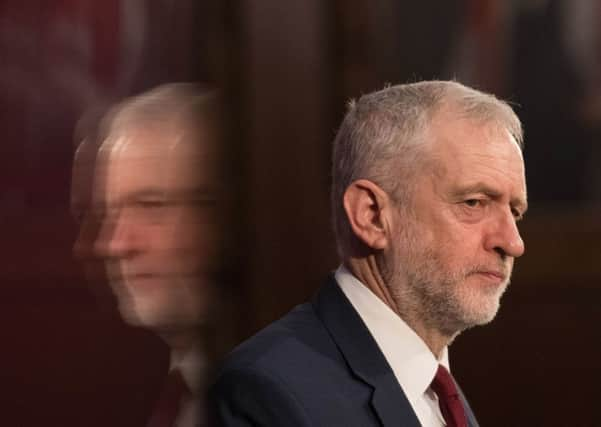YP Comment: Jeremy Corbyn, go now for the sake of your country and your party


It was the first time that this corner of Cumbria has been represented by a Tory MP, namely Trudy Harrison, in more than 80 years.
It was the biggest gain, in terms of vote share, by a governing party since Harold Wilson promised the Humber Bridge to hold Hull North in 1966.
Advertisement
Hide AdAdvertisement
Hide AdAnd it is the only occasion that a ruling party has won a seat off their main opponents since Mitcham and Morden in 1982, a poll that revolved around a political defection to the fledgling SDP and the Falklands conflict.
Mr Corbyn’s response? Talk of another conversation – just how many more are needed? – while blaming the Brexit intervention by Tony Blair, and Tory smears over nuclear fuel in a seat that is home to the Sellafield power plant, for this humiliation.
The time for excuses is over. Mr Corbyn is bereft of credibility. He can’t win and his MPs are embarrassed by him. Virtually any other leader would have won this by-election against an incumbent government presiding over the local maternity hospital’s closure.
And Mr Corbyn should draw no glee from his party holding the previously impregnable seat of Stoke Central – it only did so because Ukip’s candidate, Paul Nuttall, became discredited over Hillsborough and the Tory vote exceeded expectations.
Advertisement
Hide AdAdvertisement
Hide AdUnder Mrs May, the Tories are becoming a formidable force in spite of Brexit. Her leadership style reassures the country at large. In contrast, the Opposition leader is not trusted and never will be – he can’t even form a Shadow Cabinet that truly holds Ministers to account. He’s had 18 months and failed.
Though Mr Corbyn does have compassionate qualities that deserve to be respected, Labour needs a leader capable of building a broad coalition of support.
Mr Corbyn, go now for the good of the country and your party. Your time is up.
Time management
THE clear difference between the Tory and Labour approaches is illustrated by university policy and the Government’s desire to launch two-year degree courses.
Advertisement
Hide AdAdvertisement
Hide AdWhile Labour remains implacable over its opposition to the student tuition fees that it introduced when last in power, the Tories believe shorter courses could be a more attractive proposition to aspirational students. Even though the cost will rise, this could, in theory, be offset by a reduction in living costs and expenses.
Of course, it remains to be seen whether it is possible – even practical – for lecturers to teach the same subject material at differing rates which are determined by each student’s specific circumstances.
However Universities Minister Jo Johnson, whose older brother Boris is Foreign Secretary, does need to realise that cramming studies into a foreshortened period out of financial necessity may not be in the best interests of those under-graduates who are already undertaking one, or more, part-time jobs to subsidise their higher education. Not everyone is fortune enough to be born with a silver spoon.
That said, Mr Johnson deserves credit for showing a degree of pragmatism, the primary duty of all politicians at a time of financial prudence.
Alcoholism’s lasting legacy
Advertisement
Hide AdAdvertisement
Hide AdSOME issues of social policy are so profound that they transcend party politics, as exemplified by Caroline Flint’s attempts to build a broad consensus that provides practical and emotional support to the 2.5 million youngsters who are the children of alcoholics.
Her courage in speaking so openly about her own experiences in childhood, and the lasting mental scars, could not have been more heartfelt as she seeks greater political and pastoral support for the families of problem drinkers – far more so that any political knockabout that so invariably constitutes Parliamentary debate.
And, in the week when it emerged that a five-year-old child had phoned a national helpline to ask for a bedtime story to be read to them because their parents were so incapacitated by drink, the Prime Minister’s empathetic response to Ms Flint could not have been more sincere – or respectful.
The Don Valley MP says her “story is not unique or heroic” and the statistics bare her out. Yet her candour, as she strives to give a voice to voiceless, means there will be children now who know they’re not alone – and that help is at hand. In so many respects, this is compassionate politics at its very best.